“A Piece of My Mind”
 November 2024 Newsletter
November 2024 Newsletter
Advancing Christian Faith and Values,
Defending Religious Liberty for All,
Supporting Civility and the Common Good
through Preaching, Teaching, Writing, Activism and Reasoned Conversations
www.donaldshoemakerministries.com
 A Practical Word on Reformation Day
A Practical Word on Reformation Day
October 31, 2024
October 31, 2017 is the day, according to the reformer Philip Melanchthon, when Martin Luther nailed his 95 Theses (written in Latin) to the door of All Saints’ Church in Wittenberg, in the Electorate of Saxony. Intending to spark an intellectual debate, Luther instead sparked a reformation, in part thanks to the invention of the printing press.
In our day of narrow-minded activism and divisive causes, we might do the political process a favor by remembering a word of advice from Luther:
“He is a mighty poor Christian who for the sake of a single castle would put the whole land in jeopardy.”
“Blessed are those who maintain justice.”
– Psalm 106:3
Adieu to “Blue Bloods”
But NYC Law Enforcement Must Go On
My wife and I have been avid watchers of “Blue Bloods” (the NYC police department led by Commissioner Frank Reagan [Tom Selleck]). At our dinner table we even use the prayer that the Reagan household shares around their family dinner table:
Bless us O Lord, and these Thy gifts
which we are about to receive from Thy bounty.
Through Christ our Lord. Amen.
Alas, the still-strongly-popular “Blue Bloods” will be gone from its network in December after fourteen seasons. Quite a run! We still will watch reruns, as we regularly do, but we wish the program would continue.
The series featured dramatized police work in many difficult situations. I saw one report that 95% of NYPD officers would never fire their weapons during an enforcement situation throughout the course of their careers. Detective Danny Reagan (Donnie Wahlberg), on the other hand, seemed to dispatch a bad guy in every other episode or so.
Why going off the air? I wondered if perhaps its in-your-face anti-Woke scenes played a part. Production costs, however, seem to be the reason, even though the cast had agreed to pay cuts.
One perspective of law enforcement that stands out is what’s called the “broken window” theory—if enforcement of the law breaks down over smaller crimes, this will spill over into greater disrespect for the law and still larger crimes. Which leads to an ongoing debate over NYC law enforcement…
“Everyone must submit himself to the governing authorities…
Rulers hold no terror to those who do right, but for those who do wrong.
If you do wrong, be afraid, for he does not bear the sword for nothing.
He is God’s servant, an agent of wrath to bring punishment on the wrongdoer.” – excerpts from Romans 13:1-5
“Gate-jumping” is no victimless crime. It deprived NYC transit of $690 million dollars in 2023. It violates a covenant of trust. It leads others to say, “Why then should I pay?” Or to justifiably feel unsafe and violated. Would you like to sit in a subway car with your family with several gate-jumpers around you?
Two officers took action, as they were supposed to, when a man jumped the gate on Sunday, September 15. When he later refused to comply with lawful orders, when a Taser was ineffective, and when he drew a knife and moved toward the officers, they opened fire. Tragically, a bystander was critically wounded. It took six officers 15 minutes to subdue the gate-jumper, who was also wounded by gunfire. The wounded suspect had 20 prior arrests.
Critics abounded, accusing the officers of endangering lives in an enclosed space, not de-escalating the situation, and for using lethal force.
But NYC mayor and former NYPD captain Eric Adams defended the officers. “He was not shot for fare evasion. He was shot because he had a knife and he went after the police officers. I thought those officers responded accordingly.”
Officers put themselves in harm’s way when necessary to protect others and uphold the law. They know that in an unexpected instant they could become the center of controversy that could spread near and far. Their careers, families and their own lives could be permanently altered. How tempting would it be to look the other way in such situations?
But that is not their calling or oath, or God’s will. Because of situations like what happened in NYC on September 15, we must all the more…
““Back the Badge”
Donald P. Shoemaker
October 2024
“The Apostles’ Creed”
(Part 10 – Final Lesson)
I believe in the Holy Spirit,
the holy catholic Church,
the communion of saints,
the forgiveness of sins,
the resurrection of the body,
and the life everlasting. Amen.
There’s a place for us,
Somewhere a place for us.
Peace and quiet and open air
Wait for us
Somewhere.
Somewhere.
We’ll find a new way of living,
We’ll find a way of forgiving
Somewhere . . .
– 1957 Broadway musical “West Side Story”
Somewhere over the rainbow way up high
There’s a land that I heard of once in a lullaby.
– Dorothy sings in “The Wizard of Oz”
 Statue donated to the United Nations
Statue donated to the United Nations
by the Soviet Union in 1959
Inscribed with the biblical words of Isaiah 2:4 –
“They shall beat their swords into ploughshares,
and their spears into pruning hooks;
nation shall not lift up sword against nation,
neither shall they learn war any more.”
Humanity yearns for a brighter, better future “somewhere.” How can we not yearn for a world at peace in light of today’s turmoil? Jesus spoke of “wars and rumors of wars” until the end of this era—short-term discouraging but ultimately hopeful words (read Matthew 24:6 and Luke 21:9-10).
The answer to the yearning is found in how God will bring a Better Tomorrow.
That’s what the final two phrases of The Apostles’ Creed are all about as they highlights two major, essential teachings of Bible prophecy: Resurrection of the body and Life Everlasting.
10A – The Apostles’ Creed is a Trinitarian Creed.
Not, of course, Trinitarianism at the level of development found in later creeds, but certainly in essence, as the formula for Christian baptism is “in the name of the Father and of the Son and of the Holy Spirit” (Matthew 28:19).
The first segment of this creed focuses on God the Father, the second on Jesus Christ his only Son. Now the focus is on the Holy Spirit.
The third and final segment of The Apostles’ Creed begins with “I believe in the Holy Spirit.” We have tied these words to the phrases “I believe in the holy catholic church” and “the forgiveness of sins.” Now we complete this final part of the divine triad by linking the Spirit to resurrection and eternal life.
The Spirit is not “third and therefore last in importance.” The Spirit’s primary ministry is to exalt the Lord Jesus Christ, and this creed indeed does that in the main second portion. Thus, The Apostles’ Creed is a Spirit-filled creed.
The Spirit is not to be ignored or side-lined, nor is he to be made most prominent. So these two extreme tendencies in Evangelical thought and life must be avoided. Sadly, a large segment of the Evangelical community has not only made the Spirit most prominent, but has a made a particular understanding of the Spirit (post-conversion baptism in the Spirit evidenced by speaking in tongues) a test of spirituality or even of true acceptance and fellowship. At the other extreme, a very different understanding of the Spirit (often some version of “cessation” of spiritual gifts) has likewise excluded those who disagree.
The Resurrection of the Body
10B – The resurrection of the body is uniquely the work of the Holy Spirit (or, if you please, the work of the Father through the Spirit).
The Apostle Paul taught in Romans 8:11 (ESV) – “If the Spirit of him who raised Jesus from the dead is living in you, he who raised Christ from the dead will also give life to your mortal bodies through his Spirit, who lives in you.”
No Holy Spirit within, no resurrection to Eternal Life!
10C – Resurrection, not a disembodied existence in Heaven, is the goal of our salvation.
“Heaven” is the location of our “intermediate state.” This suggests a way-station prior to the ultimate goal of life’s journey. Much preaching and many songs present Heaven as the ultimate goal and journey’s end. This puts us, to use N. T. Wright’s rather blunt words, into a state of blissful post-mortem disembodiment. Yes, this is bliss, for we are “with the Lord.” But it is not the completion of our humanity. Resurrection and the attendant glorification are.
10D – Resurrection of the body puts Jewish/Christian anthropology at odds with other ways of understanding “who we are”.
Biblical anthropology sees us as “whole persons,” not as embodied souls or spirits. Our make-up is one of psychosomatic unity, not separation. Whatever “parts” we may have, God sees us as whole persons.
Our body and soul dimensions belong together. Death rips this unity apart. Resurrection rejoins it and completes our salvation as we become what God created us to be.
10E – Resurrection of the body is a miracle not dependent on the preservation of the body.
Certainly both ancient and modern humans realize that the human body decomposes. Only rarely is this process prevented or slowed through ancient and modern efforts to preserve the body.
Resurrection of the body will happen not because it has been preserved like canned vegetables or by cryogenics. Resurrection will happen because of Jesus’ divine power to subject all things to his will. “We eagerly await a Savior from [heaven], the Lord Jesus Christ, who, by the power that enables him to bring everything under his control, will transform our lowly bodies so that they will be like his glorious body” (Philippians 3:20-21).
There is both continuity and discontinuity between our mortal bodies and their resurrected essence. “The body that is sown is perishable, it is raised imperishable; it is sown in dishonor, it is raised in glory.” See 1 Corinthians 15:35-54 for extensive teaching on this.
The Life Everlasting
10F – The Creed simply declares “The Life Everlasting” and leaves us to search out the fine points of what this means.
The lesson I see from this is that a confession accepting the biblical reality of eternal blessed existence is essential. How we systematize the biblical information into ideas on what it will be like should not be made a test of orthodoxy or the basis for fellowship (such as for church membership).
Now for some “fine points”:
The Book of Revelation engages in “recapitulation” at times, which is to say that the writer hits the “rewind” button and backtracks to look at things in a different way (such as topically). But is a “rewind” justified in Revelation chapters 19-20? Or can we simply take the details sequentially?
If we take the details sequentially we will have: (1) Jesus’ second coming, (2) the binding of Satan, (3) the first resurrection (much preferred!), (4) the millennial rule of Christ on earth, with the saints as co-regents, (5) a final satanic rebellion and Satan’s banishment forever, (6) the second resurrection and judgment, (7) the eternal state in the New Jerusalem.
There. If that sequence is yours, you are a “Pre-millennialist,” which is to say, you believe Jesus will return and establish his millennial rule. There are other options (see the box below for one).
11F – “Pre-millennialism” does not speak with one voice. Rather, it has sub-options.
Church history shows developing forms of Pre-millennialism, A-millennialism and Post-Millennialism co-existing while jockeying for widest acceptance. It’s appears to me that Pre-millennialism was preferred in the Early Church. See Contemporary Options in Eschatology by Millard Erickson for a summary.
In the 20th Century “Dispensationalism” was a dominant version of Pre-millennialism. It sees the Millennium as a period of restoration and blessing for Israel, including a Temple and its worship particulars. Another version calls itself “Historic Pre-millennialism.” It sees God’s children enjoying millennial bliss without a sharp distinction between the Church and Israel.
The above summary is simplistic almost to the point of embarrassment. But the reader needs to grow in his or her understanding of “Bible prophecy” with these distinctions in mind. We need to understand the differences, depict each view fairly, and chose what appears to be the best option. I was not afforded this challenge in my theological education.
I do see a millennial role for a restored Israel, trusting in its Messiah and being a blessing to the world. I have many questions as to details. No, I don’t believe it is necessary to hold that a Millennial Temple will be built that reconstitutes sacrificial practices and excludes all who are “uncircumcised!”
Nor do I believe that a future restored Israel legitimatizes the current State of Israel as a prophetical fulfillment (but today’s Israel does have a historical claim for land and country). Nor do I believe in a rapture of the church at any time separate from Jesus’ glorious return, which is our “blessed hope.”
I do believe in a millennial world of remarkable abundance, peace and safety, with Messianic rule and justice and with never-seen-since-Eden harmony between a redeemed humanity and the created order. I don’t claim to understand how all the pieces will fit (I’ll still run from a rattlesnake).
 “Peace” – 1896 Painting by William Strutt
“Peace” – 1896 Painting by William Strutt
The wolf will live with the lamb,
the leopard will lie down with the goat,
the calf and the lion and the yearling together;
and a little child will lead them – Isaiah 11:6
12F – How do we receive Life Everlasting?
“God so loved the world that he gave his only begotten Son, that whoever believes in him might not perish but have everlasting life.” – John 3:16
“The Spirit and the bride say, “Come!” And let him who hears say, “Come!” Whoever is thirsty, let him come, and whoever wishes, let him take the free gift of the waters of life.” – Revelation 22:17
May God bless this study and fill us with hope for a bright Tomorrow of completed redemption. And may all of us be open in heart and mind to the thoughts that were expressed.
May the entire Apostles’ Creed become part of our understanding and regular recitation. Abundance of blessing will be ours.
Some suggested reading on biblical “Future Events”:
• Evangelical Theology by Michael Bird. Part 3 – “The Gospel of the Kingdom: The Now and the Not Yet.” (Pre-millennial)
• The Christian Faith by Michael Horton (my former student!). Part 6 – “God Who Reigns in Glory.” (A-millennial)
• A Case for Historic Premillennialism edited by Craig Blomberg and Sung Wook Chung.
• And if you are interested in the “rapture” question, my 2024 essay The Second Coming of Christ and The Rapture of the Church, is available to you free by email upon request. (Post-tribulational)
Fine reading on The Apostles’ Creed, among many good options:
• Affirming The Apostles’ Creed by James Packer.
• What Christians ought to Believe by Michael Bird.
• The Faith by Pope Benedict XVI.
• The Creed by Luke Timothy Johnson.
May the entire Apostles’ Creed become part of our understanding and regular recitation. Abundance of blessing will be ours.
Is there an answer?
“Blessed and holy is the one who shares in the first resurrection! …they will be priests of God and of Christ, and they will reign with him for a thousand years.”
– Revelation 20:6 (English Standard Version)
Many Christians see this “rule with Christ” as a literal 1000-year period following Jesus’ “Second Coming.” So they are known as “Pre-millennialists.” Other Christians see this as a present “rule with Christ,” a non-literal Millennium. So they are known as “A-millennialists.” Actually, they are more accurately “Realized Millennialists,” for they see the “Millennium” being fulfilled in the “now.”
But I see a problem! The Book of Revelation says this millennial period will NOT be a time of satanic activity. An angel seizes the Devil (Satan) and casts him into a pit, “so that he might not deceive the nations any longer, until the thousand years were ended” (read Revelation 20:1-3). If the Millennium is being realized now, it cannot be a time of satanic activity throughout the world of nations!
No, the Devil isn’t a released prisoner with a tracking device attached to his ankle to monitor and limit his movements. The Devil is bound and sealed into prison!
What do the Scriptures say?
“The field is the world, and the good seed is the sons of the kingdom. The weeds are the sons of the evil one, and the enemy who sowed them is the devil. The harvest is the end of the age, and the reapers are angels.” – Matthew 13:38-39
Clearly, in this parable Jesus taught the devil is active and deceptive in the present age before the time of the end, striving to frustrate the work of God in the world.
“Resist the devil, and he will flee from you.” – James 4:7
“Give no opportunity to the devil.” – Ephesians 4:27
“Put on the whole armor of God, that you may be able to stand against the schemes of the devil.” – Ephesians 6:11
A church leader “must be well thought of by outsiders, so that he may not fall into disgrace, into a snare of the devil.” – 1 Timothy 3:7
“Satan has so filled your heart that you have lied to the Holy Spirit” – Acts 5:3 (Peter’s admonishment to Ananias)
And most significantly, “Be sober-minded; be watchful. Your adversary the devil prowls around like a roaring lion, seeking someone to devour.” – 1 Peter 5:8
Sounds like “Satan is alive and well on planet earth,” to use the title of a book by prophecy guru Hal Lindsey. Christians honest with themselves acknowledge the constant struggle with Satan that marks the present life:
For still our ancient foe doth seek to work us woe.
His craft and power are great.
And armed with cruel hate, on earth is not his equal.
– “A Mighty Fortress Is Our God” by Martin Luther
The present age, as scripture testifies, is a time of significant satanic activity. The devil is on God’s leash, yes, but he certainly isn’t bound that he might not deceive the nations, let alone the church. This being the case, how can the present age be the “realized Millennium”? Maybe Pre-millennialism is a better option.
Food for thought! But perhaps A-millennial readers whom I respect have an explanation and will let me know.
Civil Discourse in a Political Season
Over 50 years ago, shortly after I arrived from Indiana to begin a pastorate in Long Beach, California, I was invited to give a prayer at the Long Beach City Council. I knew from reading the local newspaper that there was a lot of ill will in city government at the time that led to harmful speech, so I began my prayer with a reading from the Epistle of James (3:17-18):
The wisdom that comes from above is first of all pure; then peace loving, considerate, submissive, full of mercy and good fruit, impartial and sincere. Peacemakers who sow in peace reap a harvest of righteousness.
The words of James are still applicable to modern politics (and all conversations). As theologian Michael Brown says, “Coarse rhetoric may get the crowds going, but is fleshly, unproductive, and contrary to the Spirit.”
www.donaldshoemakerministries.com
Don has been a member of the clergy in the Long Beach, California area since 1970. He has served as Pastor Emeritus of Grace Community Church of Seal Beach (where he was senior pastor 1984-2012) and as Senior Chaplain of the Seal Beach Police Department (2001-2024). He previously was an assistant professor of Biblical Studies at Biola University (1976-84) and chaired the Social Concerns Committee in the Fellowship of Grace Brethren Churches from 1985 to 2019.
His graduate work includes a Master of Divinity magna cum laude from Grace Theological Seminary, a Master of Theology from Fuller Theological Seminary with a concentration in Christian ethics, and a Doctor of Ministry from American Baptist Seminary of the West (now Berkeley School of Theology) with a concentration on the Charismatic Movement. His law school studies included a course on the First Amendment.
Don and his wife Mary have been married for 58 years. They have two children and six grandchildren, plus now a grandson-in-law. They recently moved to Temecula, California
© 2024 Donald Shoemaker (revised for 2024)



 I thought of this scripture as the apocalyptic scenes of incredible fires appeared recently west and north of where we live in S. California.
I thought of this scripture as the apocalyptic scenes of incredible fires appeared recently west and north of where we live in S. California.



 Many evangelical churches have separated baptism from the saving confession in practice through the introduction of another “sacrament” – the “walking forward invitation” to receive Christ, followed sooner or later by baptism (hopefully) when one gets around to it.
Many evangelical churches have separated baptism from the saving confession in practice through the introduction of another “sacrament” – the “walking forward invitation” to receive Christ, followed sooner or later by baptism (hopefully) when one gets around to it.
 Leonardo da Vinci’s “The Last Supper” (c. 1495-98)
Leonardo da Vinci’s “The Last Supper” (c. 1495-98)
 “The God of wine, which is also a French jewel and father of Sequana, the Goddess linked to the River Seine. The idea was to create a big pagan party in link with the God of Mount Olympus.”
“The God of wine, which is also a French jewel and father of Sequana, the Goddess linked to the River Seine. The idea was to create a big pagan party in link with the God of Mount Olympus.” Imane Khelif of Algeria, who a year ago failed a gender eligibility test by the International Boxing Association, went on to win Gold in women’s boxing after (earlier) defeating Angela Carini of Italy who, despite her skill and physical conditioning, lasted only 46 seconds in the ring. She would later say she had never been hit so hard (in the face) as she was by a blow from Khelif.
Imane Khelif of Algeria, who a year ago failed a gender eligibility test by the International Boxing Association, went on to win Gold in women’s boxing after (earlier) defeating Angela Carini of Italy who, despite her skill and physical conditioning, lasted only 46 seconds in the ring. She would later say she had never been hit so hard (in the face) as she was by a blow from Khelif. Theologian Robert McTeigue, SJ, considers the state of the contemporary church and answers…
Theologian Robert McTeigue, SJ, considers the state of the contemporary church and answers… Nickolas Kristof—“Progressive” No More
Nickolas Kristof—“Progressive” No More George Gentry—
George Gentry— A Bronze Star for Heroic Military Service
A Bronze Star for Heroic Military Service Students march and rally on Columbia University campus in support of a protest encampment supporting Palestinians, despite a 2pm deadline issued by university officials to disband or face suspension, during the ongoing conflict between Israel and the Palestinian Islamist group Hamas, in New York City, U.S.,
Students march and rally on Columbia University campus in support of a protest encampment supporting Palestinians, despite a 2pm deadline issued by university officials to disband or face suspension, during the ongoing conflict between Israel and the Palestinian Islamist group Hamas, in New York City, U.S., “I contemplate with sovereign reverence that act of the whole American people which declared that their legislature should ‘make no law respecting an establishment of religion, or prohibiting the free exercise thereof,’ thus building a wall of separation between Church & State.”
“I contemplate with sovereign reverence that act of the whole American people which declared that their legislature should ‘make no law respecting an establishment of religion, or prohibiting the free exercise thereof,’ thus building a wall of separation between Church & State.” I believe in the Holy Spirit
I believe in the Holy Spirit An Unexpected
An Unexpected One of the parachutists was Lt. Col. Robert L. Wolverton, 29, from West Virginia. Hours before his battalion (3rd Battalion, 506th Parachute Infantry Regiment of the 101st Airborne division) made its jump, Col. Wolverton addressed the 759 troops under his command and prayed with them.
One of the parachutists was Lt. Col. Robert L. Wolverton, 29, from West Virginia. Hours before his battalion (3rd Battalion, 506th Parachute Infantry Regiment of the 101st Airborne division) made its jump, Col. Wolverton addressed the 759 troops under his command and prayed with them. We hold these truths to be self-evident, that all men are created equal, that they are endowed by their Creator with certain unalienable Rights, that among these are Life, Liberty and the pursuit of Happiness. – That to secure these rights, Governments are instituted among Men, deriving their just powers from the consent of the governed…
We hold these truths to be self-evident, that all men are created equal, that they are endowed by their Creator with certain unalienable Rights, that among these are Life, Liberty and the pursuit of Happiness. – That to secure these rights, Governments are instituted among Men, deriving their just powers from the consent of the governed… As they were looking on, he was lifted up, and a cloud took him out of their sight. And while they were gazing into heaven as he went, behold, two men stood by them in white robes, and said, “Men of Galilee, why do you stand looking into heaven? This Jesus, who was taken up from you into heaven, will come in the same way as you saw him go into heaven.”
As they were looking on, he was lifted up, and a cloud took him out of their sight. And while they were gazing into heaven as he went, behold, two men stood by them in white robes, and said, “Men of Galilee, why do you stand looking into heaven? This Jesus, who was taken up from you into heaven, will come in the same way as you saw him go into heaven.”  Chancellor/dictator Adolph Hitler, at the urging of Heinrich Himmler and Hermann Göring, ordered executions to consolidate his power. The violence from June 30 through July 2, 1934 was directed against the paramilitary group known as “Brown Shirts,” which had supported Hitler’s rise to power but which was seen as a threat by the German military. Other political enemies of Hitler were also purged by execution, including Gustav Ritter von Kahr, a political leader in Bavaria who had suppressed Hitler’s Munich Beer Hall Putsch in 1923.
Chancellor/dictator Adolph Hitler, at the urging of Heinrich Himmler and Hermann Göring, ordered executions to consolidate his power. The violence from June 30 through July 2, 1934 was directed against the paramilitary group known as “Brown Shirts,” which had supported Hitler’s rise to power but which was seen as a threat by the German military. Other political enemies of Hitler were also purged by execution, including Gustav Ritter von Kahr, a political leader in Bavaria who had suppressed Hitler’s Munich Beer Hall Putsch in 1923. “Our God in Heaven, we begin by asking your very special comfort and encouragement for the families of the four officers killed in Charlotte. Guide the law enforcement departments and their leaders through this very difficult time.
“Our God in Heaven, we begin by asking your very special comfort and encouragement for the families of the four officers killed in Charlotte. Guide the law enforcement departments and their leaders through this very difficult time.

 A Soldier
A Soldier Good Friday?
Good Friday? Bearing shame and scoffing rude,
Bearing shame and scoffing rude, [/vc_column_text][/vc_column][/vc_row][vc_row][vc_column][vc_column_text]
[/vc_column_text][/vc_column][/vc_row][vc_row][vc_column][vc_column_text] You may have been one of the millions who watched the “He Gets Us” ad during the Super Bowl where several instances of washing another’s feet were depicted.
You may have been one of the millions who watched the “He Gets Us” ad during the Super Bowl where several instances of washing another’s feet were depicted. January 6 is “Epiphany” to many Christians. It celebrates the Christ Child, whose coming was marked by the arrival of the Magi (“Wise Men”) who came to worship baby Jesus. In their coming, salvation to the Gentiles through the Christ Child is on display.
January 6 is “Epiphany” to many Christians. It celebrates the Christ Child, whose coming was marked by the arrival of the Magi (“Wise Men”) who came to worship baby Jesus. In their coming, salvation to the Gentiles through the Christ Child is on display.
 I Recall An Old “Henry Kissinger” Story
I Recall An Old “Henry Kissinger” Story Charles Wesley (1707 – 1788)
Charles Wesley (1707 – 1788) Hail! the heav’n-born Prince of peace!
Hail! the heav’n-born Prince of peace! The Great Disappearance
The Great Disappearance Ohio Enshrines Abortion Rights into its State Constitution
Ohio Enshrines Abortion Rights into its State Constitution Israeli Airstrike Hits St. Porphyrius Church
Israeli Airstrike Hits St. Porphyrius Church St. Porphyrius church was severely damaged by the October 20 Israeli airstrike. The Israeli military acknowledged the air strike, which targeted the nearby Hamas rocket and mortar launch command post. The church’s chapel survived the attack, but the airstrikes destroyed other parts of the compound.
St. Porphyrius church was severely damaged by the October 20 Israeli airstrike. The Israeli military acknowledged the air strike, which targeted the nearby Hamas rocket and mortar launch command post. The church’s chapel survived the attack, but the airstrikes destroyed other parts of the compound. As many as 500 people had taken refuge at the site, sleeping on mattresses throughout the compound’s seven buildings and using three bathrooms. It is estimated that 380 of the refugees were Christian and the rest Muslim. The known death toll from the airstrikes was eighteen Christians and two Muslims, not counting bodies still buried in the rubble. The Orthodox Patriarchate of Jerusalem strongly condemned the attack.
As many as 500 people had taken refuge at the site, sleeping on mattresses throughout the compound’s seven buildings and using three bathrooms. It is estimated that 380 of the refugees were Christian and the rest Muslim. The known death toll from the airstrikes was eighteen Christians and two Muslims, not counting bodies still buried in the rubble. The Orthodox Patriarchate of Jerusalem strongly condemned the attack.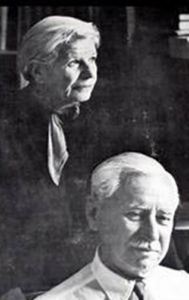 Will (1885-1981) and Ariel (1898-1981) Durant produced over their scholastic lifetimes the massive 11-volume The Story of Civilization. It was one of the first sets to go into my professional library, added while I was in graduate school. Prolific writers, in 1968 they wrote The Lessons of History, a summary of historic trends.
Will (1885-1981) and Ariel (1898-1981) Durant produced over their scholastic lifetimes the massive 11-volume The Story of Civilization. It was one of the first sets to go into my professional library, added while I was in graduate school. Prolific writers, in 1968 they wrote The Lessons of History, a summary of historic trends.